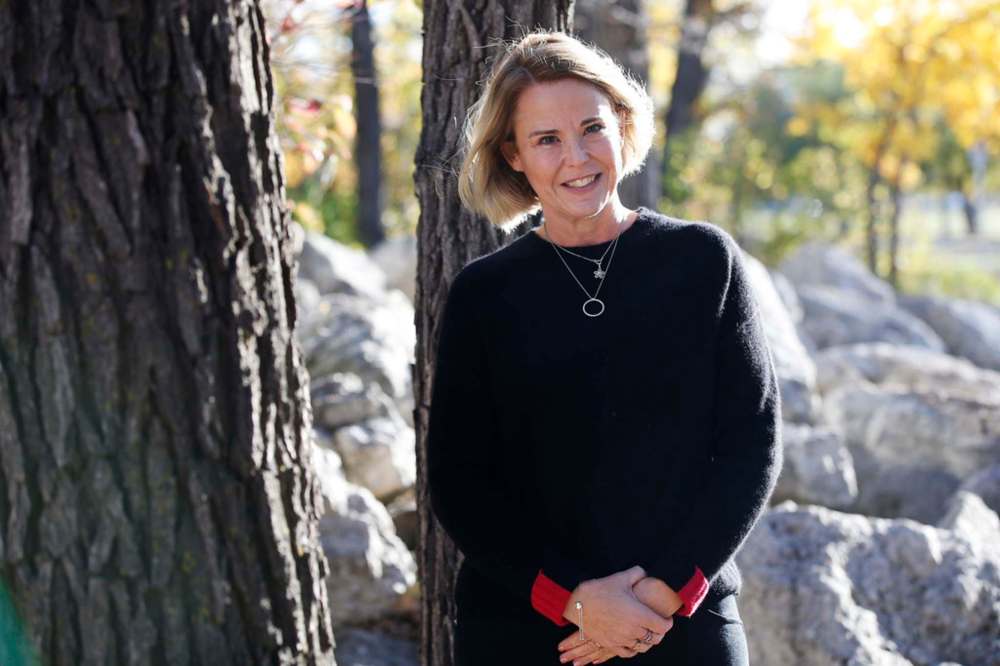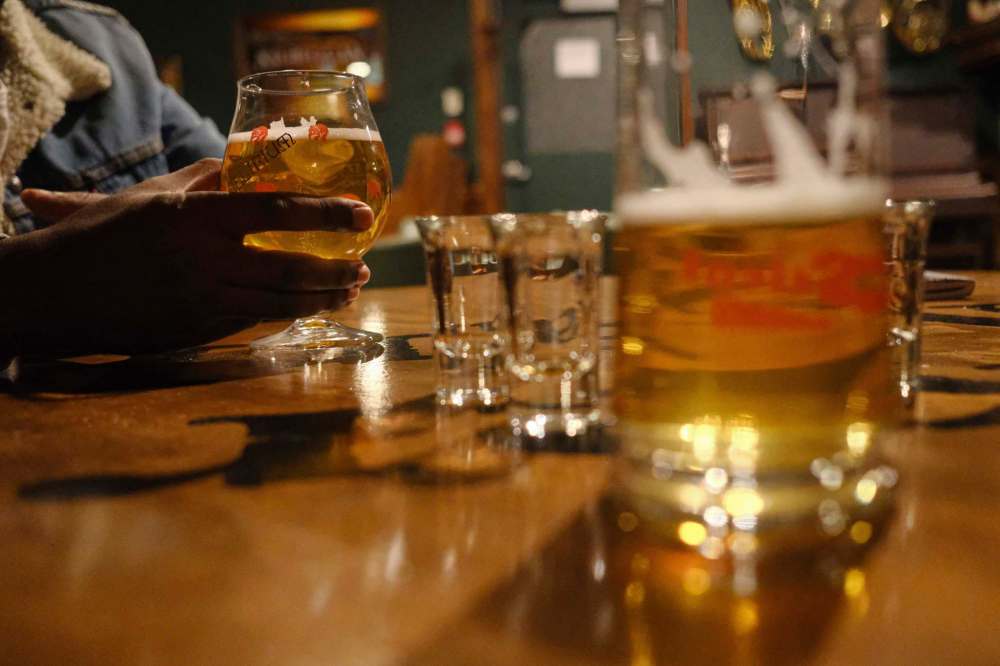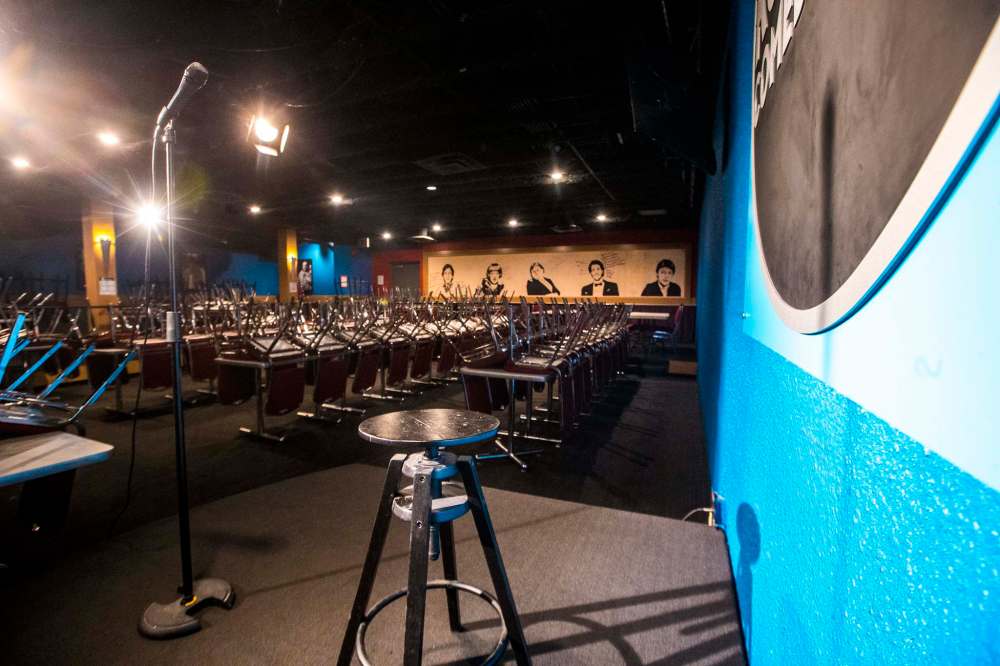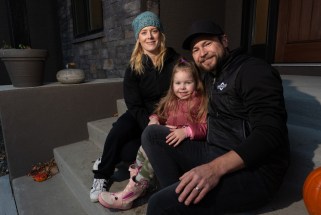Big limit on funerals, few on strip clubs Epidemiologist explains reasoning behind COVID restrictions
Read this article for free:
or
Already have an account? Log in here »
To continue reading, please subscribe:
Monthly Digital Subscription
$0 for the first 4 weeks*
- Enjoy unlimited reading on winnipegfreepress.com
- Read the E-Edition, our digital replica newspaper
- Access News Break, our award-winning app
- Play interactive puzzles
*No charge for 4 weeks then price increases to the regular rate of $19.00 plus GST every four weeks. Offer available to new and qualified returning subscribers only. Cancel any time.
Monthly Digital Subscription
$4.75/week*
- Enjoy unlimited reading on winnipegfreepress.com
- Read the E-Edition, our digital replica newspaper
- Access News Break, our award-winning app
- Play interactive puzzles
*Billed as $19 plus GST every four weeks. Cancel any time.
To continue reading, please subscribe:
Add Free Press access to your Brandon Sun subscription for only an additional
$1 for the first 4 weeks*
*Your next subscription payment will increase by $1.00 and you will be charged $16.99 plus GST for four weeks. After four weeks, your payment will increase to $23.99 plus GST every four weeks.
Read unlimited articles for free today:
or
Already have an account? Log in here »
Hey there, time traveller!
This article was published 23/10/2020 (1872 days ago), so information in it may no longer be current.
In the first week of new tightened restrictions on businesses, gatherings and events in Winnipeg, some people wonder why some sectors were clamped down on and others weren’t.
For example, why can only five people go to a funeral, but strip clubs can operate at 50 per cent capacity?
In addition, the public health order that took effect Monday, which is set to last for at least two weeks, ordered the closure of beverage rooms and places that had an entertainment facility licence. Hours after it took effect, Manitoba’s chief public health officer reversed course and allowed beverage rooms to open.
Epidemiologist Cynthia Carr says Manitoba’s top doctor makes decisions about restrictions based on several considerations.

“We’re having more and more community spread that is not as obvious to trace back to a source, and so… Dr. (Brent) Roussin is really running out of options for targeted restrictions or changes,” she said. “Because the more there’s community spread, the less you can really target something.”
The challenge now, for public health officials and business owners alike, she said, is to work with the public to limit community spread.
“Business owners are being massively impacted because they’re a target, they are something that can be clearly seen. We have a structure in place for health inspectors to make sure there’s compliance with whatever the measure is,” she said.
“But when you put the onus on a business and shut them down, and community members say ‘OK, let’s take the party to my basement,’ we’re just sabotaging… it’s our behaviour in continuing to get together that’s pushing the community spread.”
Here are different sectors in Winnipeg that are subject to restrictions:
Funeral homes
Funeral homes, which are built to accommodate large numbers of people, have some of the most severe restrictions under the current public health order. Regardless of where a funeral takes place, no more than five people can be present.
Roussin has said that funerals are strong spreaders of the virus.
“We know that funerals have been sites of spreader events. We know that just the nature of a funeral really makes physical distancing unwieldy,” he said in August.
Even though people can be properly distanced in a large space, that is just one factor to consider when determining restrictions, Carr said. Human behaviour has to be taken into account.
“The reason that events like funerals and weddings have been shown to be super-spreader events is because of the aspects of those events which tend to bring together people from different communities, of different age groups, in very emotional states,” she said.
Funeral services will likely continue to be restricted if cases remain high, in part, because of the emotional vulnerability that comes with the practice.
“As much as people will try their best to adhere to all of the rules, reality is that when you’re at an event like a funeral, there’s a lot of emotion,” she said.
“So there’s still that human behaviour component – I want to hug you, I want to cry. I might be sobbing. Those, unfortunately… are putting more risk for the virus to be in that environment and spread.”
Beverage rooms
Roussin’s last-minute decision to allow beverage rooms to remain open, after announcing they would have to close for two weeks, confused business owners and patrons alike.
A government spokesperson told the Free Press Tuesday that, while the decision was originally made to attempt to curb the spread of COVID-19 – particularly among young Manitobans – the decision was reversed after it was made apparent that many beverage rooms were operating as restaurants.
“As the formal public health orders were being drafted, it became apparent that the sector has evolved beyond the current liquor licence categories,” he said in an email. “Given that many beverage rooms are operating more like restaurants, it was determined that a closure of beverage rooms is not required at this time.”
For now, beverage rooms are allowed to operate with a 50 per cent capacity limit.

Epidemiologists and public health officials consider which harm-reduction measures are achievable when deciding what sectors can operate more freely than others, Carr said.
While there may be more people visiting a beverage room than other, more restricted businesses such as entertainment facilities, what they provide in social utility means more harm reduction is possible.
“So if a beverage room also offers food, particularly if that beverage room is attached to a hotel, by keeping that open, you’ve allowed some harm reduction in that you might be encouraging people at the hotel to stay there and not go to four or five other places,” she said.
“The more you drink, the more likely you are to let your guard down, you’re moving closely together. Obviously, if there’s loud music playing, you’re speaking louder, you’re leaning into each other so you can hear,” she said.
Home gatherings
Those looking to host events at home can’t invite a big group. Under current restrictions, the number of guests is limited to five.
The province has given municipal bylaw enforcement officers the ability to issue fines to homeowners who break the rules. An individuals can be ticketed $1,296 for an offence.
Carr said allowing a maximum of five guests at a home makes sense.
“We might go to a restaurant and stay 60 to 90 minutes … but when we host an event in our home, it can be much longer than that,” she said. “So the more people you have for longer periods of time together under that room, the more chance there is for that virus to spread.”
Strip clubs
Many of Manitoba’s exotic dancers remain employed since there is no specific restriction related to clubs with dancers. Nightclubs in the city are able to open unless they have an entertainment facility licence.
Carr said she’s confused in this case. While it may make more sense if the club generally operates without a lot of personal interaction, that was not always the case for clubs with live entertainment.

“The category of the business doesn’t necessarily clearly identify the layout of the space, the behaviour of the patrons, whether or not food is offered,” she said.
Many of Winnipeg’s strip clubs continue to operate at 50 per cent capacity and reduced hours. Some, such as Solid Gold on Notre Dame Avenue, open for only a few hours a night. While reduced capacity may help people adhere to social distancing guidelines, Carr said human behaviour at nightclubs says otherwise.
“I am perplexed by that particular decision because human behaviour is going to dictate the risk in any setting. In a setting where there’s music, people do have a tendency to lean in, and have to speak loudly to each other, and maybe encouraged to also dance because there is music playing,” she said.
“It’s not like a movie theatre, where you’d assume there’s a seat for every patron coming in the door.”
Live comedy
Again, the decision on whether to let establishments stay open depends on where they sit on the harm-reduction scale.

Carr said the fact that many businesses that offer live comedy are still open at 50 per cent capacity makes sense.
“There’s the control in terms of the seating and enforcing social distancing, with people sitting in assigned seating just like in a restaurant,” she said.
Carr said public health officials likely considered the enhanced opportunity for realistic social distancing, the fact that respiratory droplets are not being passed through close contact or yelling, and the fact that many comedy clubs operate as dining rooms.
“The difference to me is that people are seated in place, watching. The person performing generally has a microphone, so they’re not yelling,” she said.
Alcoholics Anonymous
Alcoholics Anonymous has had to get creative with its meetings, which are a necessary mental-health service to attendees. While many meetings are held via Zoom or other online portals, in-person meetings have resumed. Regardless of the reason for the gathering, they have been limited to five guests.
Carr said she sympathizes with those looking to get back to meetings that provide such an important service, but understands why there was no leniency for groups like Alcoholics Anonymous.
“I’m thinking of anything from prenatal class, to Weight Watchers, to AA, any kind of group that would come together for support or education. Instead of trying to rank them in terms of social utility and what’s most important, the science of the disease is the No. 1 foundation,” she said.
The onus should be on organizers to ensure those few spots available for in-person support should be reserved for people who don’t have access to technology.
“Where can we support people, but at a distance, and where do you need to allow people to get together? I see that as kind of a balance,” she said.
malak.abas@freepress.mb.ca
Twitter: malakabas_

Our newsroom depends on a growing audience of readers to power our journalism. If you are not a paid reader, please consider becoming a subscriber.
Our newsroom depends on its audience of readers to power our journalism. Thank you for your support.
History
Updated on Friday, October 23, 2020 7:23 PM CDT: Fixes typo.












